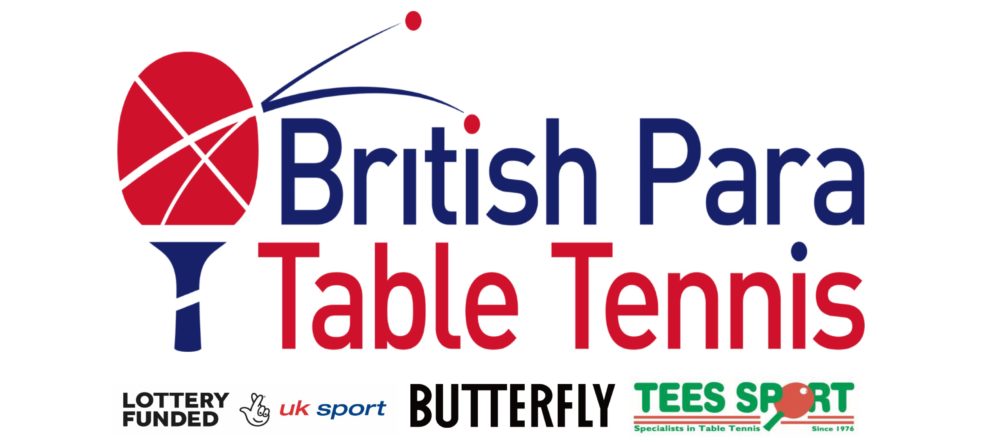It was a golden end to the European Para Table Tennis Championships in Slovenia for the British team today as Paul Karabardak, David Wetherill and Martin Perry took gold in the men’s class 6 team event beating World silver medallists Croatia in the final.
Karabardak and Wetherill got off to a flying start in the opening doubles match and were quickly 2-0 up but the Croatian combination of Pavao Jozic and the former World number one Vjekoslav Gregorovic came back to level at 2-2 before the GB pair asserted themselves again to win the match 11-4 in the fifth. In the first singles Karabardak looked to be in trouble at 2-0 down against Jozic but the Welshman, who celebrated his 32nd birthday yesterday, drew on all his experience and showed tremendous character to level at 2-2. At 3-0 down in the fifth GB coach Andrew Rushton called time out and it proved to be a good decision as Karabardak quickly levelled and then moved ahead, taking the match 11-7 in the fifth and securing gold for Britain.
“I was frustrated because I know I can stay in the game with him,” said Karabardak, “so to be 2-0 down and him to be dictating the game and me trying to force the play, I knew I had to change things and try and control the game, which I did. I started getting the ball on the table and I think he started to get a bit nervous and I was able to capitalise on that. When I was 3-0 down at the start of the fifth Andrew said ‘move the ball around’ which I did and I managed to get back into it and I’m over the moon with the way I played against a top opponent who has had a good competition. It’s very special – my first major gold – and I’m so pleased that I could play my best table tennis and help the team to become European champions.”
It was a second medal at these championships for 27 year old Wetherill from Torpoint, who had taken silver in the men’s class 6 singles.
“We knew from the start that the doubles would be really important,” he said, “and if we could go into the singles 1-0 up then Paul could play relaxed and we would be in a very strong position to take the victory. At 2-0 up were playing really well and very positive but in the third set we lost a string of points and my confidence dropped a little bit and all of a sudden they were back at 2-2. I’ve got to pay big credit to Tim Pitt our psychologist because he has really helped me for the past few years - that part of table tennis is massive especially in the finals and the major medal matches and I think we played the important points well today. I was so glad Paul won because I was a nervous wreck watching from the bench. He played amazingly and I’m really proud of him.”
“It’s been great being part of this team,” said 23 year old Perry, from Paisley. “These guys have a bank of knowledge and experience that I can feed on and it has been incredible being able to help and support them in any way I can – both in the training hall and by being supportive on the bench. Hopefully that energy transfers onto the table because we are in this together and I think the guys have played amazing throughout. I was down to play in the first match but I wasn’t needed so it shows that we have strength in depth in this team and going forward I’m sure there is much more success to come for us.”
After both producing good performances in the singles here Sue Gilroy and Megan Shackleton had high hopes of a medal in the team event but they completed a disappointing competition with a 2-0 loss to World champions Serbia in their final match in the round-robin women’s class 4-5 event. European bronze two years ago and bronze in the World Team Championships earlier this year are testament to their potential as a team and 18 year old Shackleton is improving all the time.
“It has been a nightmare competition for us,” admitted Gilroy, whose preparation for these championships had been hindered by her recovery from major surgery on her arm in the summer. “That is the worst we have played in the team event – we have never done this badly before which is a shame but we just need the right preparation next time. I haven’t played anywhere near my best and it is just one of those things.”
“It has been a disappointing team event,” said Shackleton, “but Sue and me know the potential we have as a good strong team partnership and in the future, as long as we can make sure our preparation is as ideal as possible, I think that this situation won’t happen again. I feel that I have had a good singles competition and moving on to the World Championships next year that shows good promise.”
